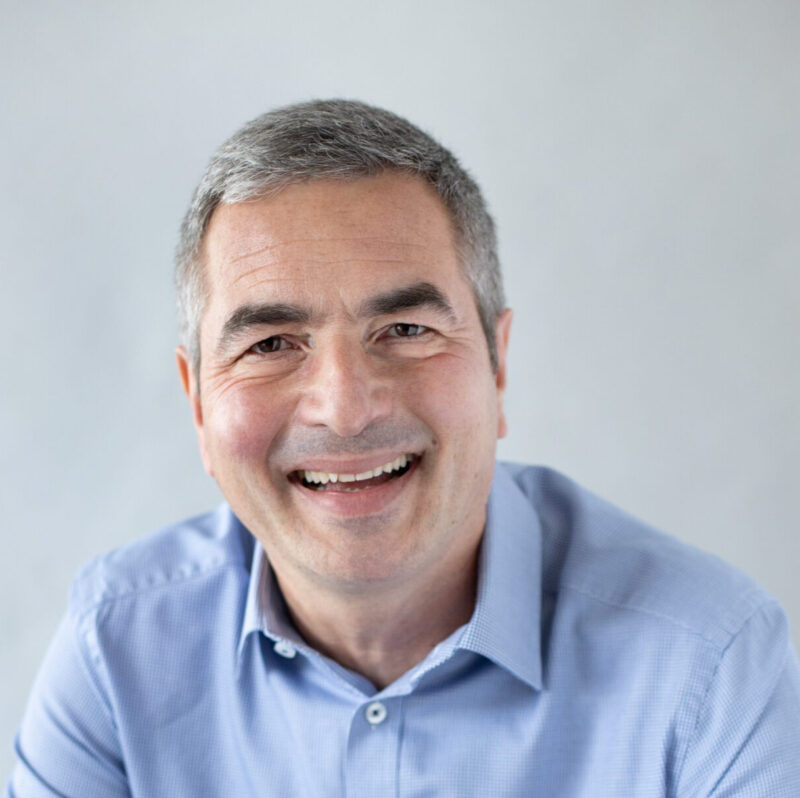Dennis Harhalakis is a Certified Money Coach and the founder of Cambridge Money Coaching. After 30 years in financial services, he trained as a Money Coach and set up Cambridge Money Coaching to help people understand and manage the money in their lives.
Having also completed Couples Coaching training, Dennis uses the Money Coaching framework to help individuals and couples to make better decisions, reduce anxiety and other negative emotions, and communicate in healthy ways. Here he shares how understanding the source of his own money beliefs and behaviours led him to money coaching and financial wellbeing.
How would you summarise your passions, both in and out of work?
Workwise, I love learning and then using that knowledge to help people achieve what’s important to them. Becoming a money coach and then a money coach trainer has been profoundly fulfilling. It has also helped me to transform my relationships with most of the people in my life.
Outside of work I spend a lot of time trail running. I also like going to concerts and live music of any sort.
What one thing do you wish you’d been told about finance when you were 15?
Invest regular amounts into a broad index fund and leave them invested for as long as possible.
What made you want to work in finance?
I was always interested in money and banking seemed like a good place to be.
How did this lead to you becoming a money coach?
My switch to becoming a money coach came when I learned about where our money behaviours and beliefs come from. I realised that for the whole of my life I had been dragging around my father’s money anxieties. They weren’t mine and I could now see a way to changing that. This was the missing link between what you know and what you actually do.
How did you then go on to found Cambridge Money Coaching?
After training as a money coach, I wanted to help others with their money issues, particularly those trapped by negative emotions and patterns around money. Money runs through our lives but most of us have never been shown how to understand or manage it. Money coaching helps people to make better decisions, reduce anxiety and other negative emotions, and communicate in healthy ways. Working with planners and advisers enables me to take this understanding to a new audience.
What prompted you to join the Institute for Financial Wellbeing (IFW)?
The IFW was the first organisation that understood financial wellbeing wasn’t just about numbers or financial literacy.
What drew you to financial wellbeing in the first place?
The understanding that having a healthy, or happy, relationship with money is a crucial part of overall wellbeing.
What’s the biggest thing you’ve learnt about financial wellbeing since joining?
What constitutes financial wellbeing is different for everybody and, while there are some agreed-upon building blocks, you need to engage with each client to find out what matters most and where they need most help.
How has the way you work with clients changed since you joined?
Joining the IFW has helped me to learn about the financial planning process, the importance of conversation and how real financial decisions happen in conversations. Creating the environment for those conversations to happen has become a key area of interest for me – both in my direct client work, and also in teaching planners, advisers and money coaches. I am much more curious about my clients than I used to be and this leads to much more interesting conversations. I see money coaching as a bridge between the logical linear-based planning processes and our subconscious, emotion-driven money behaviours; and it’s through conversation that you bring the two sides together.
Who or what is your favourite wellbeing guru, podcast or book?
My favourite wellbeing podcast is Feel Better, Live More with Dr Rangan Chatterjee.
He has an amazing selection of guests that cover every aspect of wellbeing (except financial). He is a really good host and allows his guests the time and space to explore their subjects.
What are you doing to advance your own financial wellbeing?
My work as a Money Coach is also my own journey to advancing my financial wellbeing.


